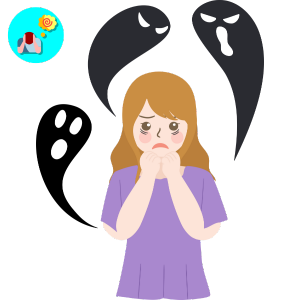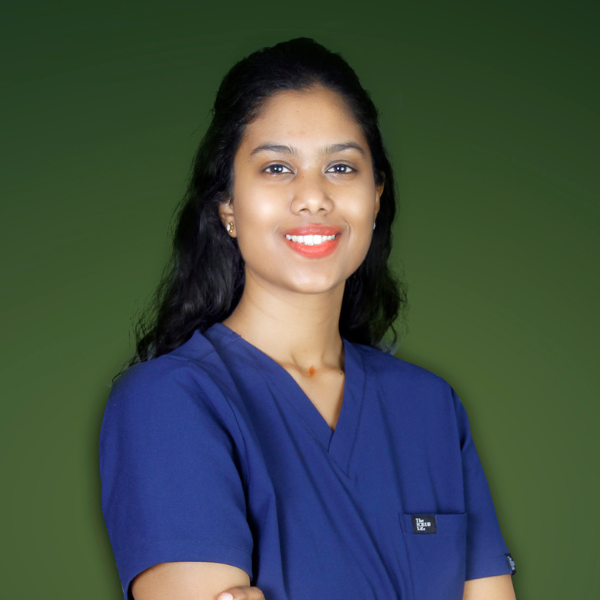
Dr Sathiya Ganesan’s
Understanding the Overlap, Supporting the Whole Child — Comprehensive Care for Complex Needs.
Comprehensive, Compassionate, and Coordinated Care for Complex Mental Health Needs
Mental health challenges in children and adolescents rarely exist in isolation. Often, a child diagnosed with one condition may also struggle with another, sometimes masked, sometimes misdiagnosed.
These are known as co-occurring disorders (also called comorbid or dual diagnoses), and they require integrated, multidimensional care.
Dr. Sathiya Ganesan, Consultant in Child and Adolescent Psychiatry, offers specialized diagnosis and treatment for children with overlapping emotional, behavioral, and developmental disorders — ensuring every need is recognized, understood, and addressed.
Understanding Co-occurring Disorders
When Multiple Challenges Interact and Intensify

Co-occurring disorders happen when a child experiences two or more mental health or neurodevelopmental conditions at the same time. These conditions often influence and aggravate one another, making treatment more complex.
Common examples of co-occurring disorders in children include:
- ADHD + Anxiety or Depression
- Autism Spectrum Disorder + ADHD or OCD
- Mood Disorders + Substance Use or Behavioral Disorders
- Learning Disabilities + Emotional Dysregulation
- Trauma + Conduct or Attachment Disorders
- Tic Disorders + Anxiety or Sensory Issues
Recognizing these combinations early allows for holistic support that targets both symptoms and root causes.
Why Co-occurring Disorders Are Often Missed
- One disorder may mask or mimic another
- Behavioral symptoms may be misinterpreted as discipline issues
- Emotional distress may go unnoticed under academic concerns
- Children may be diagnosed with one condition while others are overlooked
- Standard therapies may be less effective if co-existing needs aren’t addressed
Dr. Ganesan uses detailed assessments, developmental history, and behavioral profiling to ensure accurate diagnosis and tailored treatment.
Signs a Child May Have Co-occurring Disorders
- Persistently poor response to standard treatments
- Conflicting symptoms (e.g., hyperactivity with withdrawal)
- Academic and social difficulties despite therapy
- Emotional outbursts, self-harm, or rigid behaviors
- Multiple concerns across home, school, and peer environments
- History of trauma, neglect, or frequent school changes
When one diagnosis doesn’t explain the full picture, it’s time to look deeper and connect the dots.
Holistic, In-Depth Evaluation
Dr. Sathiya Ganesan conducts a comprehensive psychiatric and developmental evaluation that includes:
- Emotional, behavioral, cognitive, and social assessment
- Medical, family, and trauma history
- Learning and sensory profiling
- Parent and teacher feedback
- Screening tools for anxiety, mood, autism, ADHD, etc.
This helps create an accurate and multi-dimensional understanding of the child’s challenges and strengths.
Integrated, Individualised Treatment Planning
Treatment for co-occurring disorders must be coordinated and flexible. Dr. Ganesan develops personalized plans that may include:
Holistic, In-Depth Evaluation
Thorough diagnostic review to identify all interacting conditions.
Compassionate Communication and Education
Helping children and families understand complex diagnoses in age-appropriate, supportive language.
Expert Psychotherapeutic Interventions
- Cognitive Behavioral Therapy (CBT) for mood and anxiety
- Behavioral Therapy for ADHD or ODD
- Play or Art Therapy for trauma and sensory regulation
- DBT or Emotional Coaching for emotional dysregulation
Careful, Judicious Use of Medications
When needed, medications are introduced gradually, with clear goals, ongoing monitoring, and parental involvement.
Family Therapy and School Collaboration
- Parenting strategies for multiple challenges
- Home routines for structure, regulation, and growth
- School IEP/504 planning and educator coordination
Supporting Co-occurring Developmental and Emotional Needs
Dr. Ganesan also addresses overlapping areas such as:
- Sleep problems and sensory issues
- Delayed social or language milestones
- Executive functioning challenges
- Self-esteem and peer rejection
- Trauma processing and attachment repair
Children are supported not just to manage symptoms — but to thrive emotionally, socially, and academically.
Why Early Identification Matters
When co-occurring disorders are missed:
- Symptoms may worsen
- School and home stress increase
- Emotional distress may lead to self-harm or isolation
- The child may be labeled unfairly or punished for behaviors they can’t control
Early, accurate diagnosis changes everything — it provides a clear path to meaningful change and long-term stability.

Why Choose Dr. Sathiya Ganesan for Co-occurring Disorder Care?
With extensive experience in child psychiatry, neurodevelopment, and behavioural health, Dr. Sathiya Ganesan ensures:
- Thorough evaluations that go beyond surface symptoms
- Integrated, customised treatment for every diagnosis
- Family-focused care that promotes emotional security and growth
- Coordination with educators and therapists for unified support
He helps children and families move from confusion to clarity, confidence, and care that truly fits.
When Challenges Overlap, Understanding Should Too
If your child is struggling in multiple areas and hasn’t improved with standard therapy, they may need a more comprehensive approach. Contact Dr. Sathiya Ganesan today for expert care that sees the whole child, not just a single diagnosis.
What are co-occurring disorders in children?
These are when two or more emotional, behavioral, or developmental conditions occur together — such as ADHD with anxiety, or autism with mood disorder.
Why is it important to identify both conditions?
If only one is treated, the other may worsen or make recovery harder. Integrated care ensures full support.
Can therapy work if my child has multiple diagnoses?
Yes. Dr. Ganesan provides customized therapy plans that adapt to the child’s unique combination of needs.
Will medication be needed for both conditions?
Not always. Medications are used only when clearly beneficial and always alongside therapy and family support.
How can school help a child with co-occurring disorders?
With proper collaboration, schools can provide IEPs, classroom accommodations, and emotional support strategies tailored to your child.


